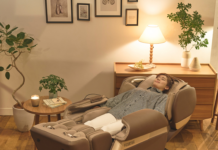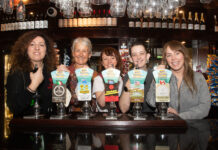For a person with dementia, loud noises can confuse, scare or trigger unwanted past memories. Read Alzheimer’s Society’s top tips for staying safe and scare-free when celebrating with fireworks.
During Bonfire night, Diwali, New Year’s Eve and other festivals and events, fireworks are commonplace and used to mark the occasion. However, fireworks may be challenging for the estimated 50,000 people living with dementia across Wales.
Jolian Ardolino, Country Manager for Alzheimer’s Society Cymru, suggests some tips for enjoying bonfire night and other festivities, while keeping safe and supporting everyone to enjoy themselves.
- Plan ahead
Ahead of fireworks night, let the person with dementia know it’s coming up. You may be able to gauge how they feel about the festivities and whether or how much they’d like to be involved.
Some people with dementia may not want to be alone on fireworks night but also not wish to take part, so finding something you can do together may help.
Speak to neighbours about their plans too. If they’re setting off fireworks nearby, this may be stressful for someone with dementia. The person may prefer to go somewhere else for a while.
- Attend a professional event
Hot chocolate, toasted marshmallows and bonfires – firework events can be great fun for all the family. If you do plan on going to a local display, be sure it’s professionally run. Some events may include a low noise firework display. Official events also adhere to strict fire and safety regulations to keep everyone safe on the night.
- Stay comfortable
To help the person with dementia feel more comfortable, check that there aren’t too many people, too much activity, loud noises, sudden movements or an uncomfortable environment. For example, if a set of fireworks is too close or bright.
If it does get too much, it’s good to have someone on hand to take the person inside, to a quieter area (near the back), or back home again.
The person you’re caring for may feel the cold far more than you do but may not realise it, or may be unable to tell you. Encourage wearing layers of clothing, ideally with natural fibres as cotton and wool. Drinking hot beverages can also help people stay warm, but do check the drinks are not too hot before giving them to the person. Some people may decide to wear ear defenders or ear plugs.
- Create an alternative fireworks night
There are lots of ways a person with dementia can enjoy fireworks if they do not wish to go to an event.
You may want to use sparklers if you have outside space at home. Or you could watch the displays from a distance or inside the house, so you can enjoy the spectacle of colours without loud noises or large crowds. You could also watch displays on television or online.
A bonfire night dinner is also a fun way to celebrate the occasion. Cooking favourite foods such as jacket potatoes, spring rolls, curries or hotdogs, can help evoke memories (and taste delicious!)
- Avoid fireworks altogether
Fireworks are not for everyone and that’s okay. If the person is distressed by the noise or bright flashes, think about alternative activities you can enjoy together such as films, audiobooks or music. Providing reassurance by talking calmly and providing touch or hugging if the person is distressed.
Jolian Ardolino continues “Being inclusive of people living with dementia and keeping them safe around or from fireworks is incredibly important. Keeping involved in festivities can help maintain their quality of life.”
If you’re affected by dementia, Alzheimer’s Society is here for you. Call their support line on 0333 150 3456 or visit alzheimers.org.uk for help and advice.
Help keep news FREE for our readers
Supporting your local community newspaper/online news outlet is crucial now more than ever. If you believe in independent journalism, then consider making a valuable contribution by making a one-time or monthly donation. We operate in rural areas where providing unbiased news can be challenging. Read More About Supporting The West Wales Chronicle























